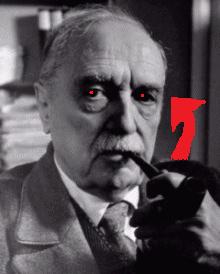
I have often posted on this blog about my admiration of Bultmann, perhaps the greatest biblical scholar of all time. This can perhaps be said due to the sheer number of subjects he influenced: from methodology to the historical Jesus, from John's Gospel to Paul's letters and theology, from Christology to anthropology, from New Testament soteriology to hermeneutics, and so on. His scope of vision was indeed breathtaking and he managed to think through all of this in such a way that gracefully interwove the various themes all together into the kerygma, God's address to us all in Christ. Indeed, his passion was faithful commitment to the Gospel and he resisted the various distractions on offer in, for example, the Religionsgeschichtliche Schule. Perhaps most notable is Bultmann's 'conversation' with Heideggerian themes such as isolation and anxiety, which he seized and 'inhabited' with the Gospel, drawing fresh insight from the correlation. Though one must immediately add that Heidegger's influence on Bultmann can be exaggerated, and it must be remembered that Heidegger himself denied his thought was concerned with existentialism or existentialist philosophy. That said, the influence is palpable: just look at the themes Bultmann covers in his NT theology of Paul! Thus pens John MacQuarrie in his 1955 work, An Existentialist Theology: A Comparison of Heidegger and Bultmann: 'WHETHER for good or ill, it is a fact that throughout its history Christian theology has fallen at various times under the influence of different secular philosophies'.
But herein lies the problem, and the soft underbelly of the great man's work. MacQuarrie is wrong. The supposed influence of 'secular philosophies' has not been a fact 'throughout' the history of Christian theology for one simple reason: 'secular' is a relatively modern invention. Yes, this 'Radical Orthodoxy' critique of Bultmann must be heard. In his method of correlation, of seeking to find space for the kerygma in 'secular' philosophy, Bultmann had inadvertently bought into a worldview deeply antithetical to the Christian vision that God is the source of all being and knowing. This led him to the further mistake of confusing the existential content of the resurrection of Jesus on the disciples with the external-to-human-disposition event-edness of Easter.
But Bultmann was simply standing in a long German tradition in this respect, and his work within that institution was without peer. Pick up a book by Bultmann today, and sit at the feet of one of the most important theologian-biblical scholars ever. But read critically, as I am sure our birthday boy himself would encourage you to do.






